Biohackers, a German series on Netflix. What is the series about? Preview & review of series on biohacking. Both season 1 and 2! Why should you watch it? Bonus: extra viewing tips for Netflix!
Series Biohackers
The Biohackers series was shot in Germany. The series consists of six parts and is mainly set in the city of Freiburg (although the city of Munich is also one of the film locations according to IMDB). The actors in the series speak German. Under the comments of the trailer on YouTube, people commented about another German science fiction Netflix hit with travel through time and dimensions: Dark.
Well, it bodes well if Biohackers is as good as Dark. According to actress Caro Cult (she plays the roommate of main character Mia) the series is an exciting thriller with comical parts. Of course I can make a joke about German humour here, but that would be too easy. 😉
This is the structure of this article:
- Preview of Season 1 (2020)
- Review of Season 1
- Preview of Season 2 (2021)
- Review of Season 2
- Extra tips for watching Netflix
I conclude this article with links to other articles and relevant websites.
This part is based on the trailer.
Preview
This is known about Biohackers. According to the description, medical student Mia Akerlund (played by Luna Wedler) tries to gain the trust of her professor Tanja Lorenz (actress Jessica Schwarz). This is because she suspects she has something to do with her tragical family history. Based on the trailer, it appears that professor Lorenz used to experiment on Mia and her little brother. Mia now wants to take revenge on Tanja.
Netflix released the first trailer at the end of July 2020. The voice-over says: “Let’s talk about the future. Synthetic biology has turned us from creatures to creators. It is not only the future of medicine but of human kind.” This sounds a little dark, certainly in times of coronavirus and the conspiracy theories that circulated about the virus being made in a laboratory. This is the reason the series has been moved. Initially, Biohackers would appear on Netflix in April 2020.
Watch the trailer below:
This is biohacking!
I’m glad that the term biohacking in this series is used to (illegally) do genetic modification. Don’t get me wrong: I’m not in favor of illegal and dangerous activities, that’s not the point. My point is that the possibilities of synthetic biologic and biohacking are becoming more widely known because of the attention for this. This can help us to continuously discuss this with each other.
Let’s go back to the reason I’m happy with this series. The term biohacking has a number of definitions. I go into this in more detail in my article about biohacking, but these are the three main categories:
- DIY-biologic. Open parts of biotechnology, in the form of hardware, experiments and knowledge.
- Optimize lifestyle. Hacking your lifestyle through diets, cold baths and food choices.
- Radical human enhancement. Changing and upgrading the humans with science and technology.
The popular media gives the most attentions to the second category. This about drinking bulletproof coffee (coffee with butter and an extract of coconut oil), following the ketogenic diet (in which you hardly take carbs and you moderate with protein) of stimulate your body with ice baths (such as the Wim Hof method).
Attention in the popular media
Until a few years ago I was a fanboy of the second category: ‘optimize lifestyle’. I still apply elements of that lifestyle, such as swimming in the winter and testing special gadgets.
The third category, ‘Radical human enhancement’ has a much bigger influence on us as humans. We don’t have to modify ourselves genetically, but this theme should be reflected more in social and political discussions. Which method should we use, when, for who, who decides, and so on? These are all moral and social questions that are becoming increasingly relevant.
Documentaries and scientific discussions help with this, but for a broader debate it is important that films and series are also made. That’s why I’m glad with the approach of Biohackers.
Luminous mouse
The Biohackers trailer leaves no doubt. In addition to images of the student life and lecture halls, it’s also about laboratories for biological tests. This is a bit more towards category 1 (DIY biology), something I a s recognize of open wetlabs such as De Waag in Amsterdam. At De Waag I attended the Biohack Academy (to illustrate the confusing of the term biohacking once again).
For example, a glow-in-the-dark mouse appears in the trailer of Biohackers, a well know phenomenon if you follow the progress in biotechnology [link below]. The mouse has genes from another organism (a luminous jellyfish). This makes the mouse light up in the dark.
In short, Biohackers is a mix of category 1 (DIY biology) and category 3 (radical human enhancement).
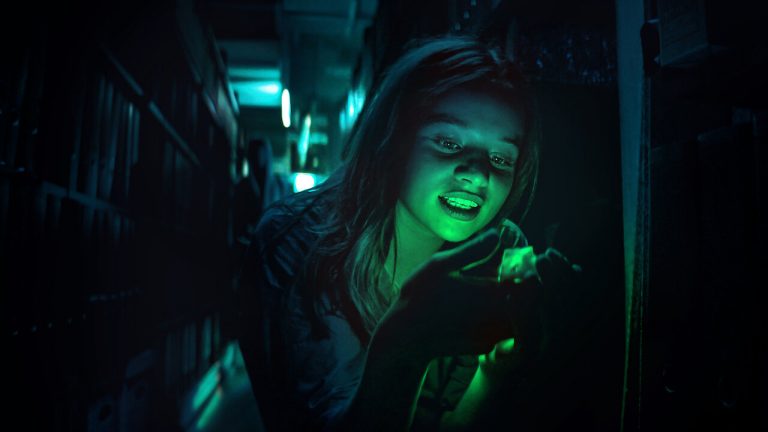
This is a review based on season 1.
Review Biohackers – season 1
If you are willing to watch the series: don’t read further. I will share a number of spoilers in the following paragraphs.
The first two episodes were a little disappointing for me. The focus was on Mia, who is going to live in Freiburg and her getting to know her roommates. Lotta isn’t interested in studying, but she is interested in partying and men. Chen-Lu is a bit stereotypical with her Chinese origins. She studies biotechnology, makes luminescent plants with genetic modifications and keeps talking. Of all supporting roles, I like her the most.
Ole the quintessential biohacker
Mia’s third roommate is Ole. He brings a few fun elements of biohacking to the series, such as an implantable NFC chip (which I also have), eye drops for night vision and magnets in his fingertips. He watches tutorials on YouTube for instructions and shares his own experiments on Instagram.
In college, Mia tries to get a job as research assistant to Professor Lorenz. She picks up with her current assistant Jasper. Later, it turns out he has its own reasons for helping Lorenz. What also becomes clear in the following episode, is that his roommate Niklas is also interested in Mia. This of course makes for a love drama, but this was too obvious to me.
Genetically modified flies
The series gains momentum in the final episodes, with illegal therapy for genetics disorders, project Homo Deus (a nice reference to Yuval Noah Harari’s book) and genetically modified flies. The series ends with an surprising and disturbing cliffhanger.
Probably there will be a second season, I am curious. I certainly find Biohackers entertaining. It shows the possibilities and danger of CRISPR-Cas9, but the actors are not completely convincing and the series lacks the sublime tension of, for example, Dark.
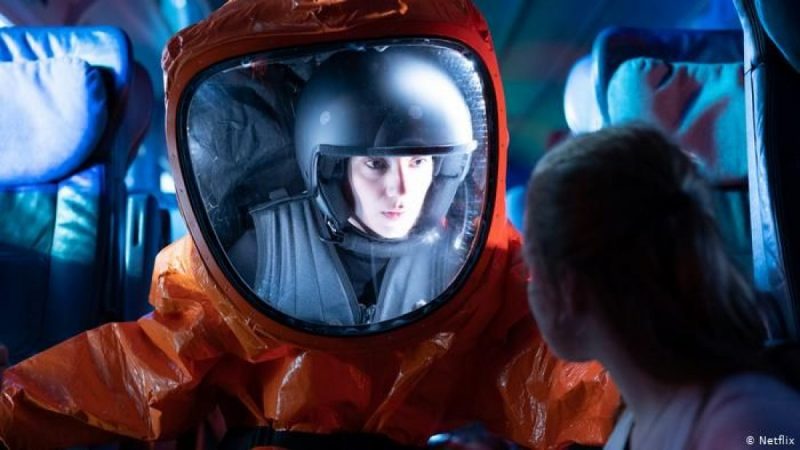
Season 2 starts in July 2021 on Netflix
Season 2 preview
On July 9, 2021, Season 2 of Biohackers will be released exclusively on Netflix. Probably Netflix publishes all episodes again so that the fans can binge the series. As with Season 1, Christian Ditter is the writer and producer. In an interview, he says about this season: ‘Season 2 will be pretty fast-paced and have a process and grown-up look. Our intention is to bring viewers to season 2.’
Our intention is to entertain viewers with Season 2.
Christian Ditter, Producer
The cast from Season 1 will return in Season 2, as will the main characters Mia (Luna Wedler) and Professor Tanja Lorenz (Jessica Schwarz). Thomas Kretschmann also plays a role. This German actor is known for films such as King Kong, Resident Evil and The Pianist.
More Chen-Lu?
The last season was surprising to me. Note: I’m sharing a few spoilers from season 1! 🚨
In the last episode (titled Fate), Mia was kidnapped, something not very unexpected. What did surprise me is that Professor Lorentz was pressured by a larger and more powerful organization. In the second season, Mia will therefore have to make an alliance with Tanja Lorentz, someone she does not trust at all based on her own family history.
My hope for season 2 is that the producer can live up to his words. So more speed in the episodes, more mystery (may also be dark and go towards horror) and more depth. It would be nice if they paid attention to other parts of biohacking, such as brain implants (think Neuralink), ethical dilemma’s and radical ideas from the transhumanism (such as uploading minds).
And, a bigger role for Chen-Lu, my favorite character from season 1.
Review of the second season
Review season 2
If you still want to watch this season, read no further. In the following paragraphs, I will share some spoilers! 🚨
Episode 1 of the second season started off strong. Mia wakes up during a lab class at college. She has no idea what has happened in her life for the past three months. Her life appears to have changed quite a bit:
- She is (again) in a relationship with Jasper, despite what happened in the previous season.
- Her ex Niklas doesn’t want to talk to her anymore.
- She has largely ignored her roommates. Chen-Lu especially had a hard time with that.
I found the scene where Mia meets her roommates again (in another house) quite funny. Ok, how controlling a drone with a brain-machine interface will turn out, that was predictable. But still I found that situation amusing, especially the rude way Lotta reacts. The conversation afterwards was also more fun and better acted than I’ve seen in season 1.
Good villain
In the following episodes, the series maintains this higher level, although it doesn’t come close to Dark or other series that I really like (such as Breaking Bad, Mr. Robot and The Wire).
What I like is Baron von Fürstenberg, played by actor Thomas Kretschmann. He is well suited as the villain of the series. The Baron is a wealthy philanthropist who funded Professor Lorentz’s research. In addition, he also appears to be responsible for the kidnapping of Mia and Professor Lorentz, the cliffhanger from the first season.
Which jeopardizes the mutual relationships in the student house (in a new location, by the way), including a number of conversations about ethics: Lotta is the daughter of Baron von Fürstenberg.
Finally, the season ends with the death of Professor Lorentz. In my opinion this has been rushed too quickly, especially compared to the build-up and pace in the earlier episodes. The last episode also left less room for a third season, but writer and producer Christian Ditter may still send an interesting proposal to Netflix.
Let’s see!
Otherwise, you should watch season 1 and 2 of Biohackers, if:
- You are interested in biohacking, biotechnology and ethics,
- You love a show with some suspense, complex love affairs, and banter between housemates,
- You like the views of the city of Freiburg and the surrounding landscapes.
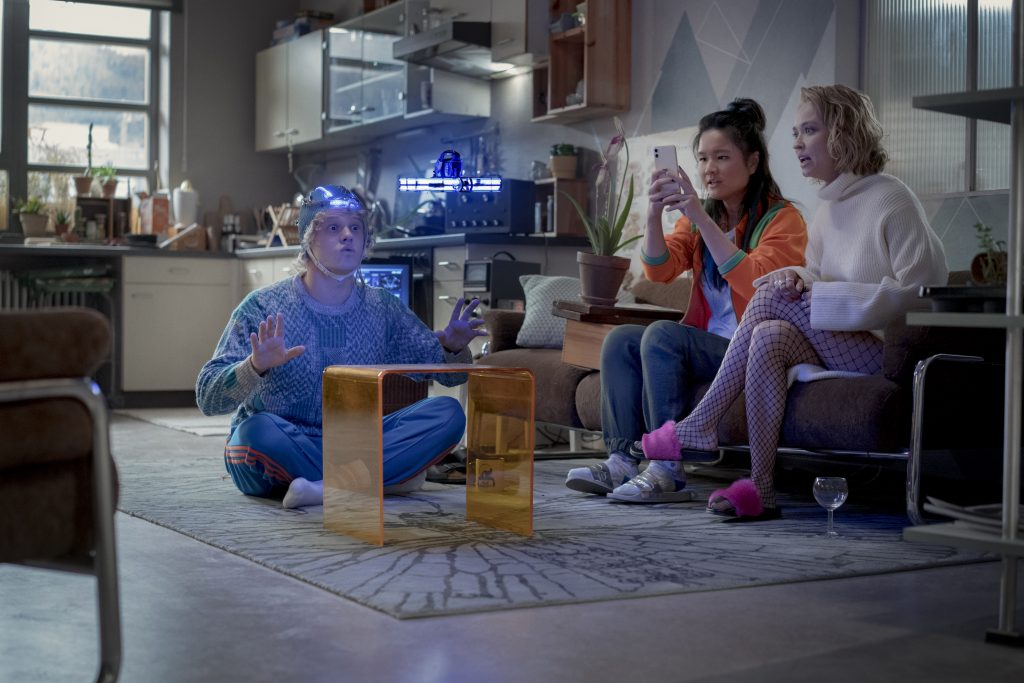
Other things to watch on Netflix about biohacking.
Netflix viewing tips
As a biohacker, I like to see that there is more and more interest in biohacking. In this last part I have two more tips: Unnatural Selection and Human Nature. These are documentaries, not fictional series like Biohackers.
I made a video about the best documentaries about genetic engineering. Take a look at the video below, or visit my YouTube-channel.
Unnatural Selection
This four-part documentary appeared on Netflix at the end of 2019. In this documentary, you follow a few researchers and amateur biotechnologists who are working on genetic modification. The makers also speak to Tristan Roberts. I interviewed him for my own YouTube channel about the experiments with gene therapy on his own body. Watch the interview!
Just like the Biohackers series, the makers chose to use biohacking in a context of genetic modification and biotechnology. The first and third category of my classification.
Unnatural Selection also featured experts who discussed the impact on health care and ecosystems.
Watch the trailer below:
Human Nature (documentary)
I can also recommend the documentary Human Nature on Netflix. The documentary is about the discovery of CRISPR-Cas9. This is a recent gene editing technique. The makers explain CRISPR clear and speak to the main protagonists (such as scientist Jenniffer Doudna, prominent geneticist George Church and my journalistic example Antonio Regalado of MIT Technology Review).
At the end, the makers will discuss the impact of genetic modification, such as helping patients but also making super soldiers (with a frightening speech by Vladimir Putin).
Watch the trailer below:
Do you want to know more about my webinars and keynotes?
Hire me!
Do you want to know more about biohacking?
Please contact me if you have any questions! Like if you want to invite me to give a lecture, presentation, or webinar at your company, at your congress, symposium, or meeting.
Or if you want to book a session with me as an expert consultant in this area.
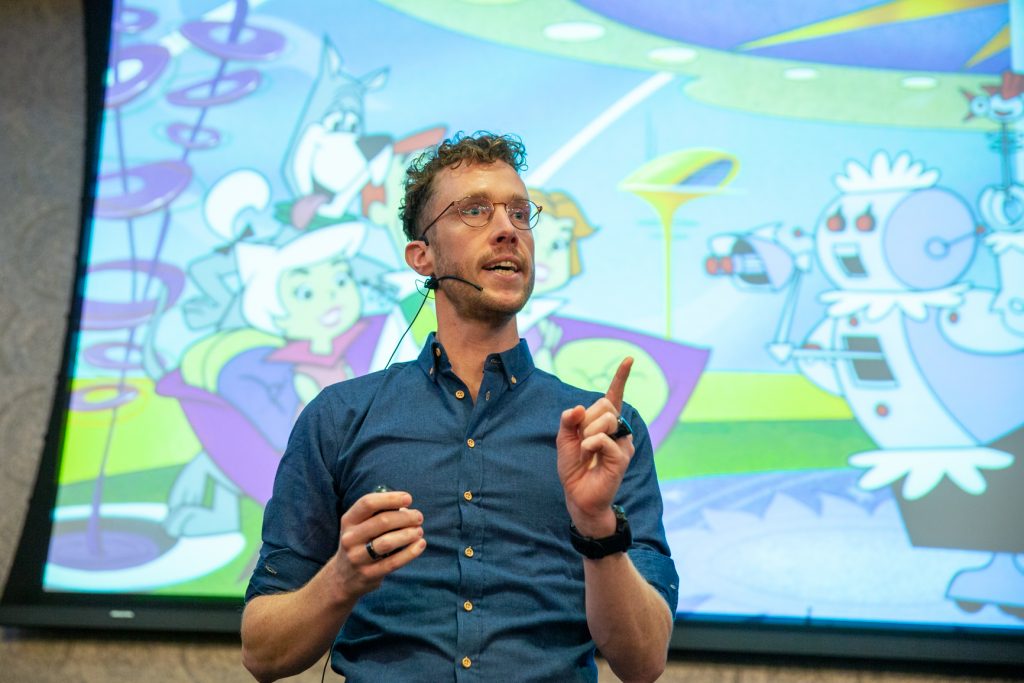
Resources
I previously wrote these related articles about human enhancement:
- What is Human enhancement?
- Which are human enhancement technologies?
- Which are human enhancement drugs?
- What is human enhancement research?
- What are the ethics of human enhancement?
These are the external links:
Did you watch the series? What do you think? Leave a comment!

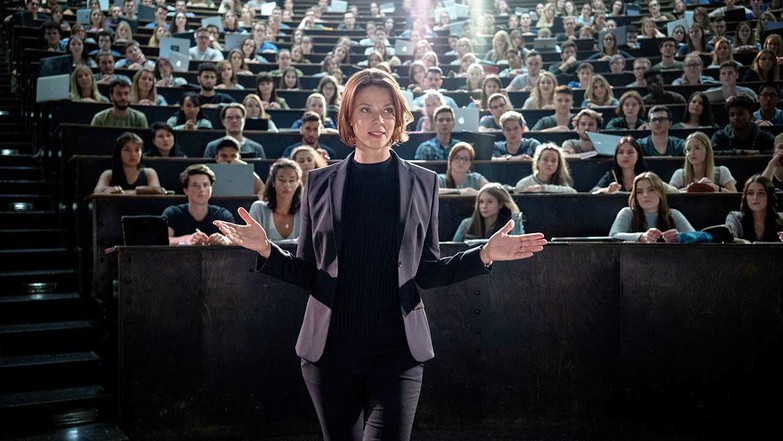
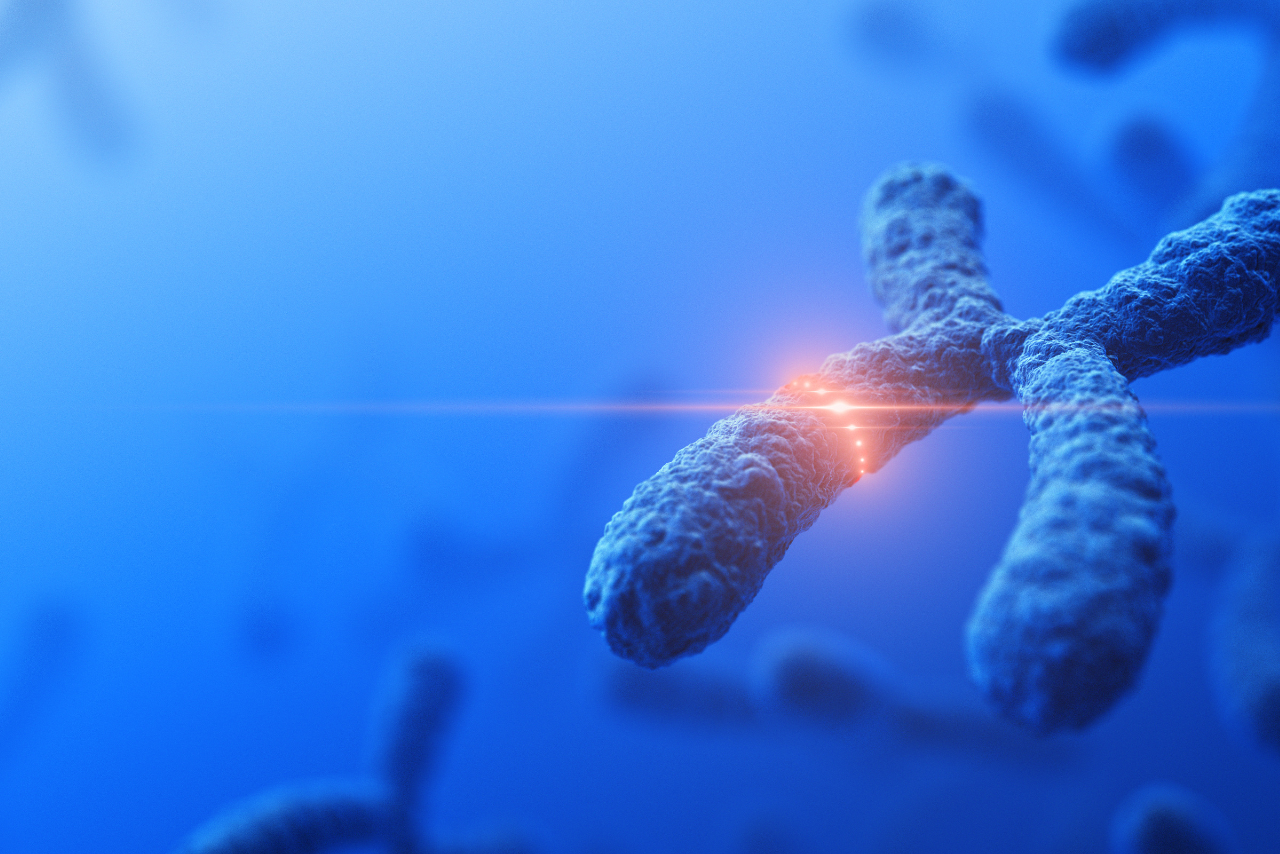
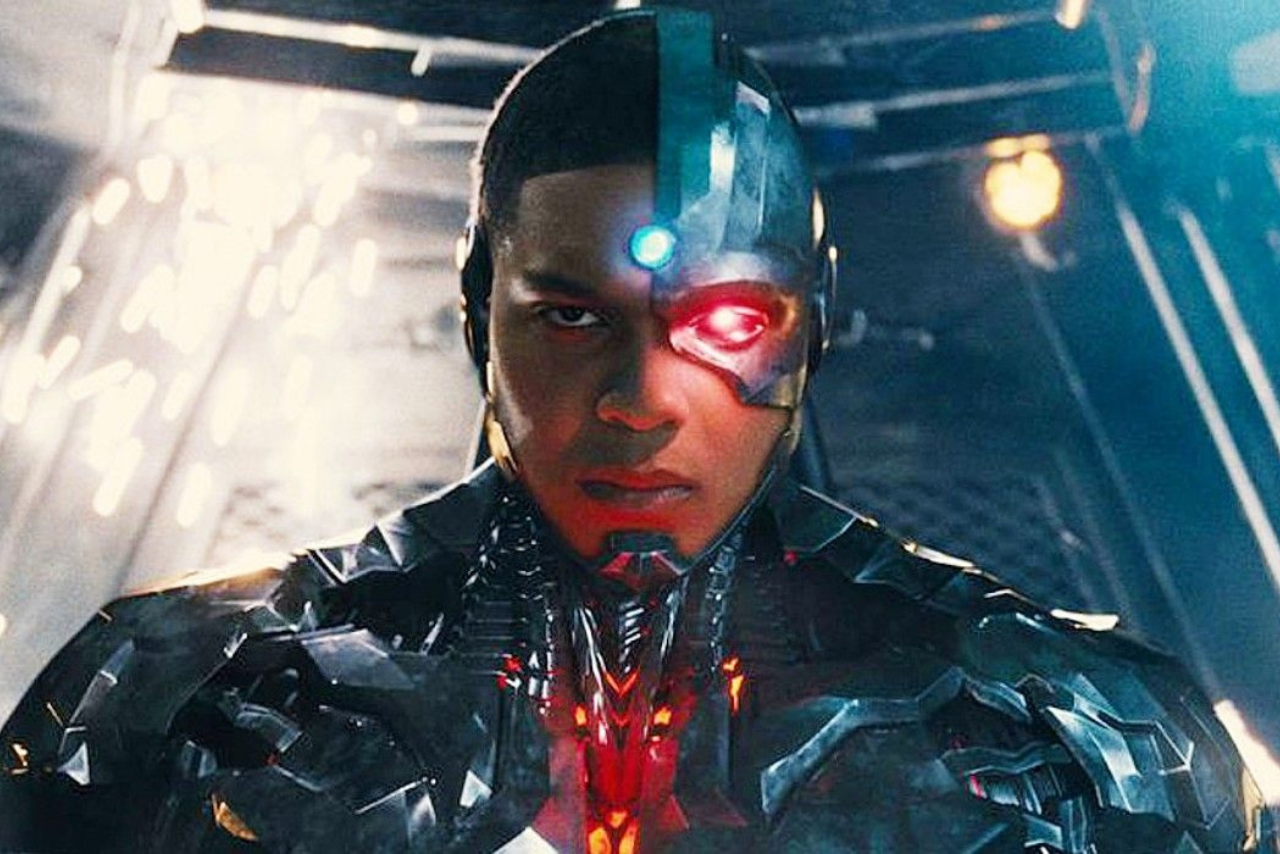
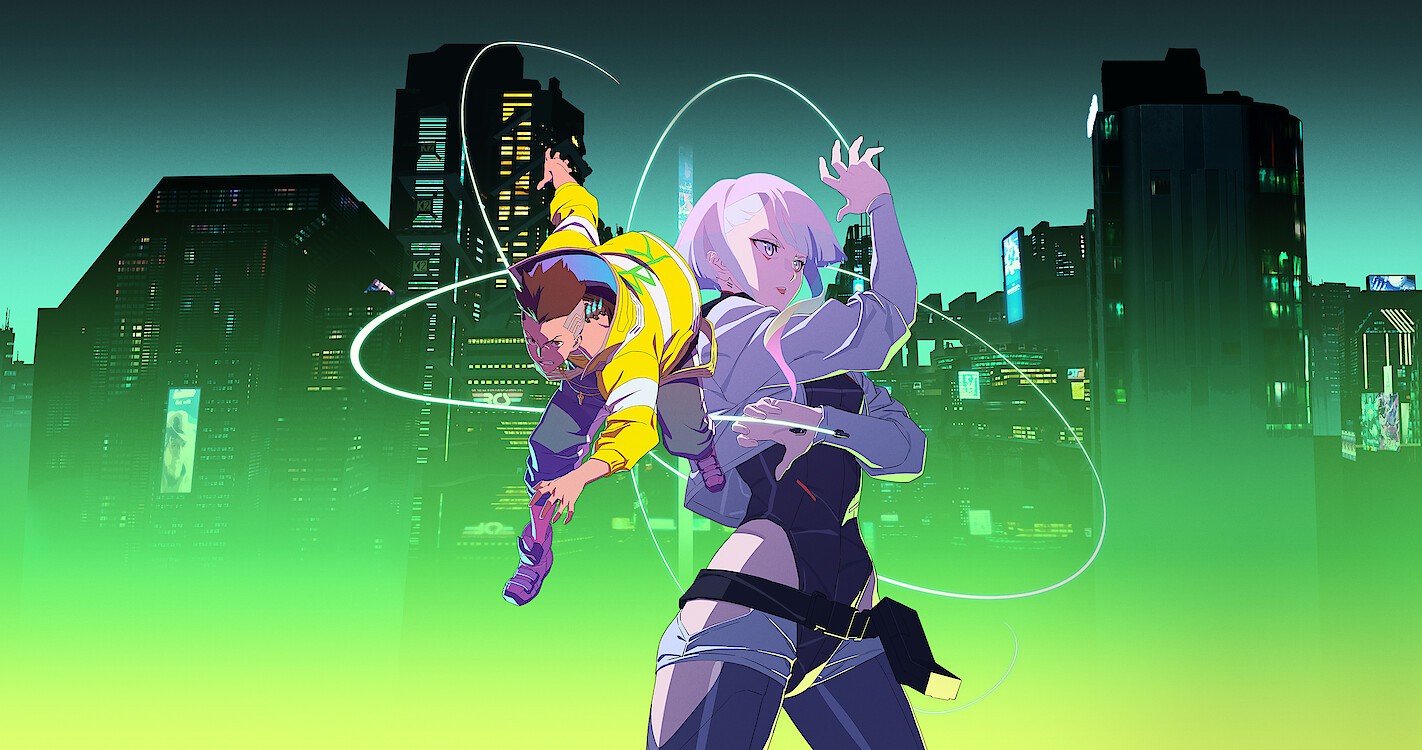
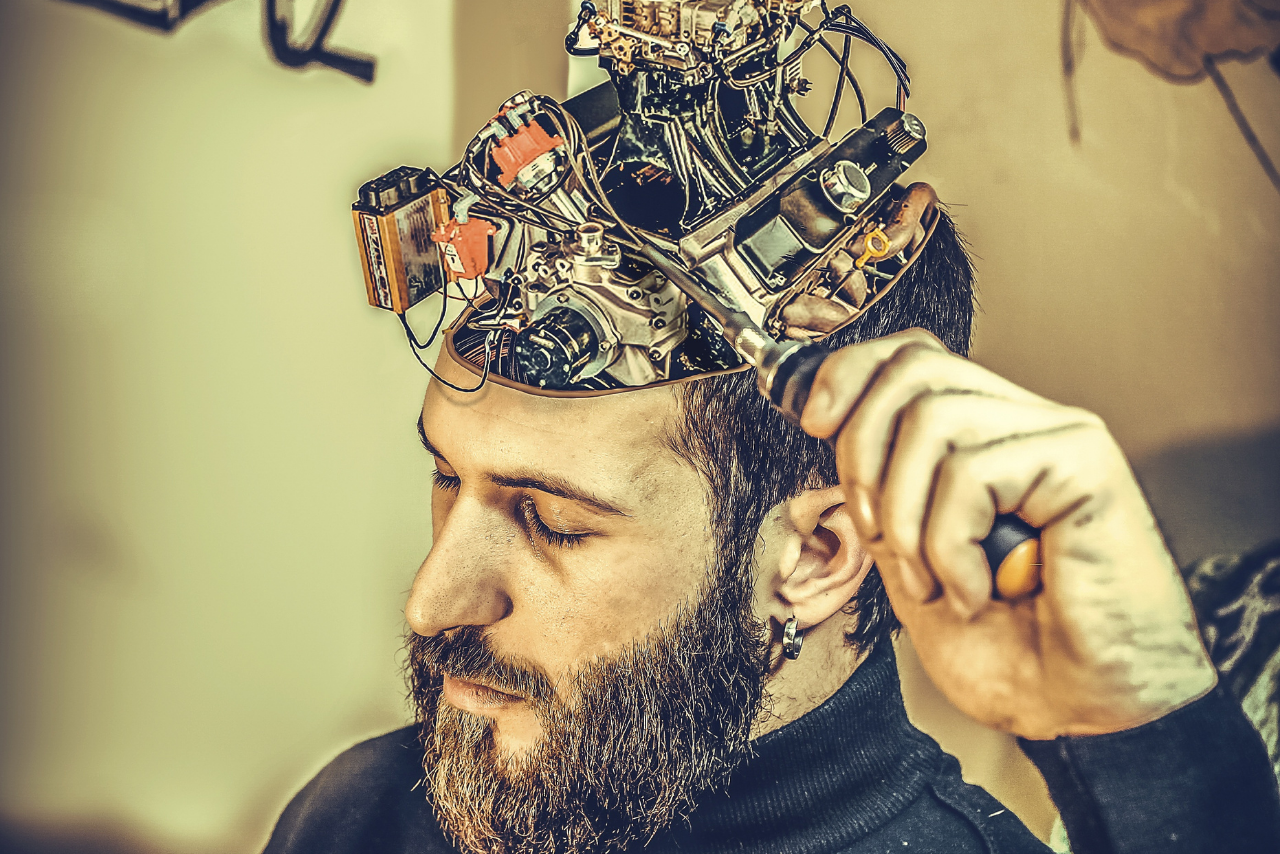

Leave A Comment